Tobacco Mosaic Virus (TMV) in Cannabis Plants: Symptoms and Prevention

- 1. What is the tobacco mosaic virus?
- 2. What does the tmv look like?
- 3. Where is the tm virus found?
- 4. Tobacco mosaic virus symptoms
- 5. How to prevent it?
- 6. How to deal with it?
- 7. In conclusion
There’s no concrete evidence if the mosaic virus can indeed infect cannabis seeds, although some growers swear it can. This happens because this virus is hard to come by and not everyone who suffers from it can test it in a lab and when the plants are tested, the results often come out as negative. Some growers say the symptoms are similar but occur because of different factors that stress your plants and others are certain it’s the virus, despite everything, one thing is certain: you don’t want your cannabis plants to get infected.
1. What is the tobacco mosaic virus?
The tobacco mosaic virus (aka TMV) is a virus widely known for affecting tobacco crops and it’s said it has spread to a lot of different plants, including the cannabis plant. The TMV is a virus that affects a plant’s development, this virus can live in contaminated tobacco products like cigarettes1, contaminated plants, soil or even in bugs that contaminate your plant when they chew on it. This virus can affect a cannabis plant development, affecting yields and the quality of the buds.
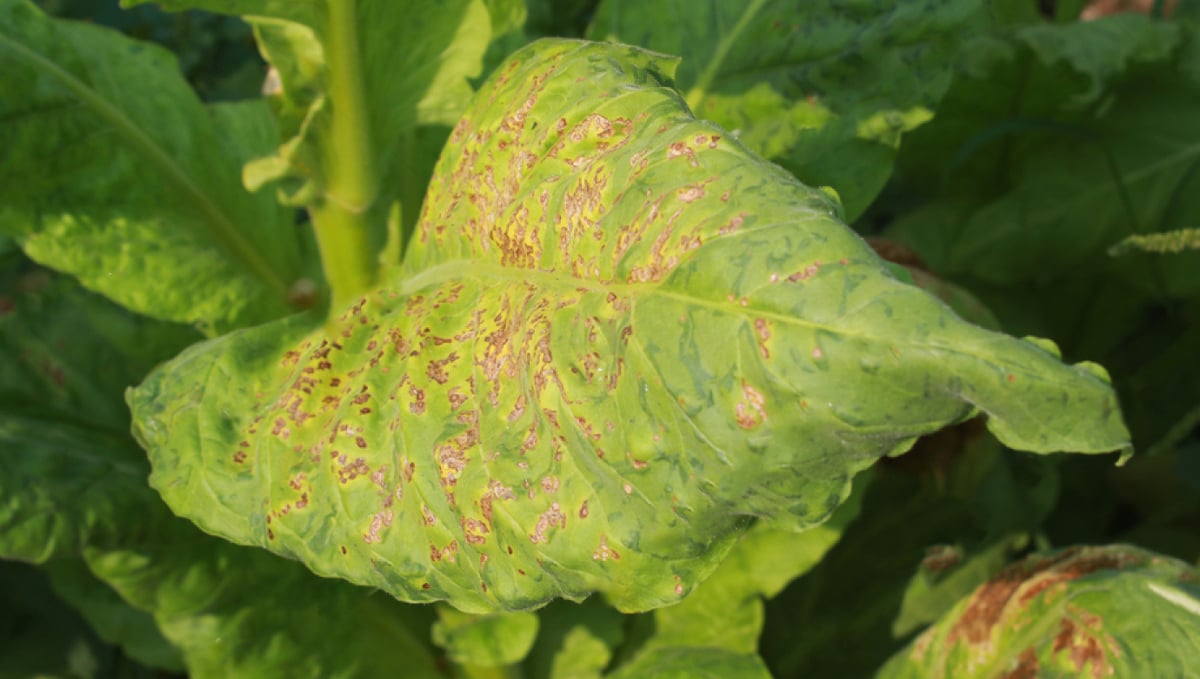
The word “mosaic” comes from the fact that this single-stranded RNA virus causes a mosaic-like mottling on the leaves of affected plants. As you're likely aware, the leaves are among the most important parts of a cannabis plant. Not only do they convert light into energy, but they also help plants to breathe and to intake nutrients and phytochemicals that are applied as foliar sprays. Because this virus affects the surface of leaves, it eventually inhibits these vital processes. The discoloration caused by this pathogen prevents leaves from photosynthesizing to their full potential. Eventually, as it spreads and dominates the vast majority of fan leaves, plants are unable to produce a fraction of the sugars that they need to grow properly and produce a respectable and worthwhile yield.
2. What does the TMV look like?
It’s impossible to see the virus itself because it’s a microscopic being, but if your plant is affected you will surely see the signs, even though some of the symptoms can be confused for other things, the mosaic pattern your plant will develop is unique and super easy to identify. If your plants show signs of leaf discoloration make sure your plants indeed are infected with the TMV and are not showing signs of overfeeding or any other plant deficiency that results in yellowing leaves. The tobacco virus cannot be removed and by treating other problems you'll be actually doing more damage.
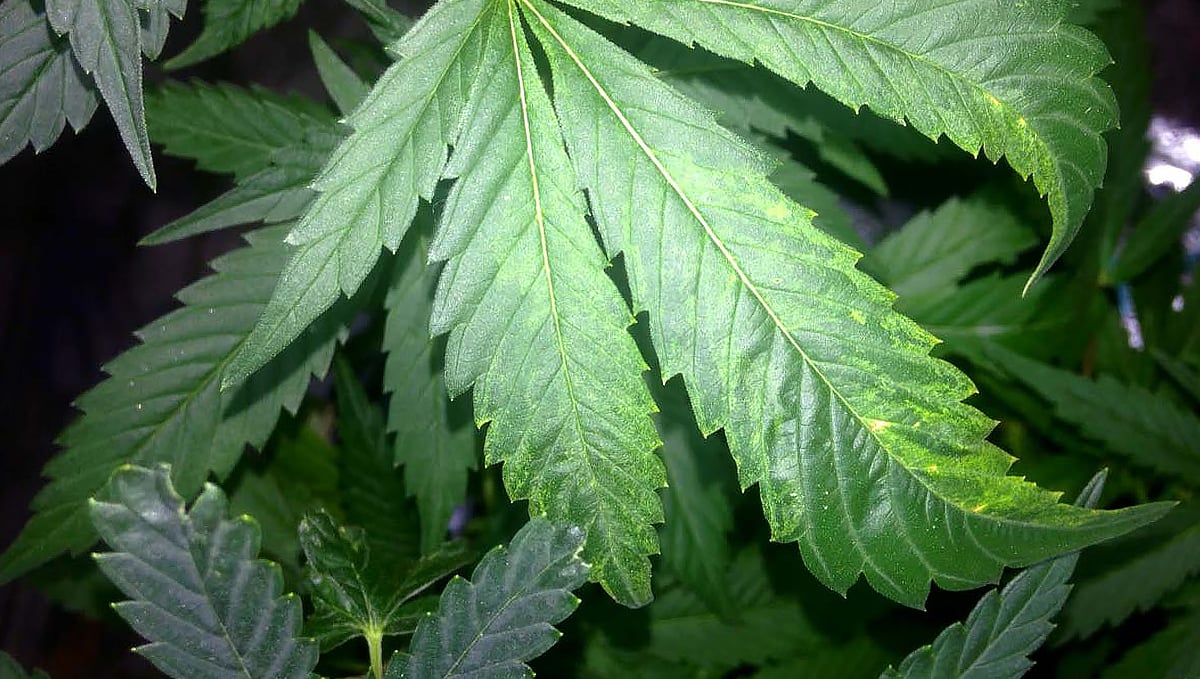
On the microscopic level, however, this pathogen possesses a rod-like appearance. It features an envelope made up of thousands of proteins that protect the internal RNA code from the outside world. Much like other RNA viruses that affect humans, the tobacco mosaic virus works as a pathogen. The external envelope features machinery that allows it to insert its RNA code into targeted cells. Once within, this code influences ribosomes—small organelles that build complex proteins from smaller subunits known as amino acids. The viral RNA code essentially hacks the ribosome and tricks it into recreating the RNA code itself. This enables the virus to multiply itself an incredible number of times. Eventually, the cell becomes full of crafted viruses that it bursts. From here, the liberated viral particles are free to hunt down and hijack other plant cells.
3. Where is the TM virus found?
Because it’s a virus, it is inside the plant so you cannot see it, but there are several ways you can expose your plants to it. Since its discovery, researchers have found out that the virus can infect more than 125 species of plants, and not only that, your plants can get infected if you plant them in infected soil or if a bug carrying the virus bites your plant, but the most common way of infection is plant to plant, by direct contact or via your hands after consuming tobacco products. This means you have to be extremely careful when touching your plants after smoking tobacco because it’s the most common way most cannabis plants get infected.
4. Tobacco mosaic virus symptoms
The symptoms your plant shows after getting the TM virus will depend, the most common symptom2 is a mosaic-like pattern on some part of the leaves, this alone won’t damage your plants but because there’s no way to remove it from a plant, this specific plant won’t be suited for breeding.
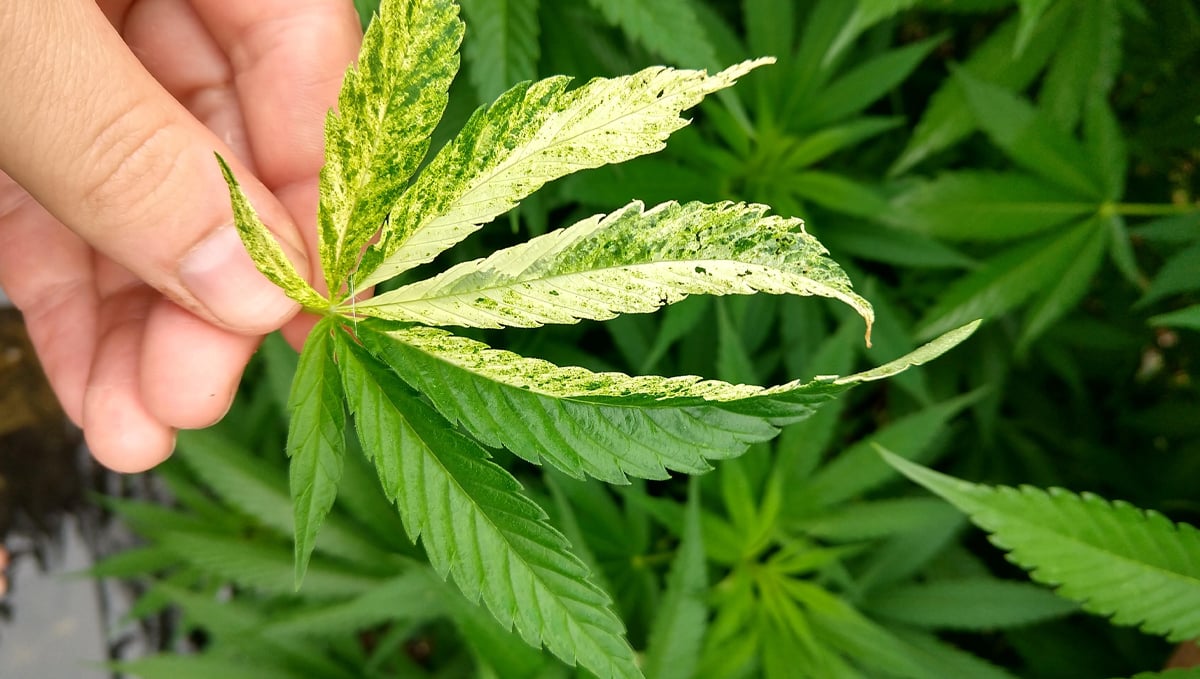
In more serious cases, you will see a mosaic pattern and some strange plant growth, this virus can cause the leaves to grow deformed, twisted and with a slower development, despite not damaging your plant, the unusual growth will affect the yields and depending on how your plant develops, it can also affect the quality of your harvest.
| Mild Symptoms | Severe Symptoms |
|---|---|
| Distinct yellowing of the leaves veins | Plant deformation |
| Yellow spotting | Stunted growth |
| Mosaic pattern on the leaves | Twisted leaves |
Have in mind that you plant can show both mild and severe symptoms at the same time, the signs your plant gives will depend on the strain and can vary from case to case, even though some symptoms like twisted leaves and deformation can be caused by other things, the unique mosaic pattern will help you identify if your plant has the tobacco mosaic virus more easily.
5. How to prevent it?
There’s no way to prevent the tobacco virus other than always:
- Sanitizing your tools;
- Buying soil or clones from a reputable vendor;
- Washing your hands after smoking tobacco or dealing with infected plants.
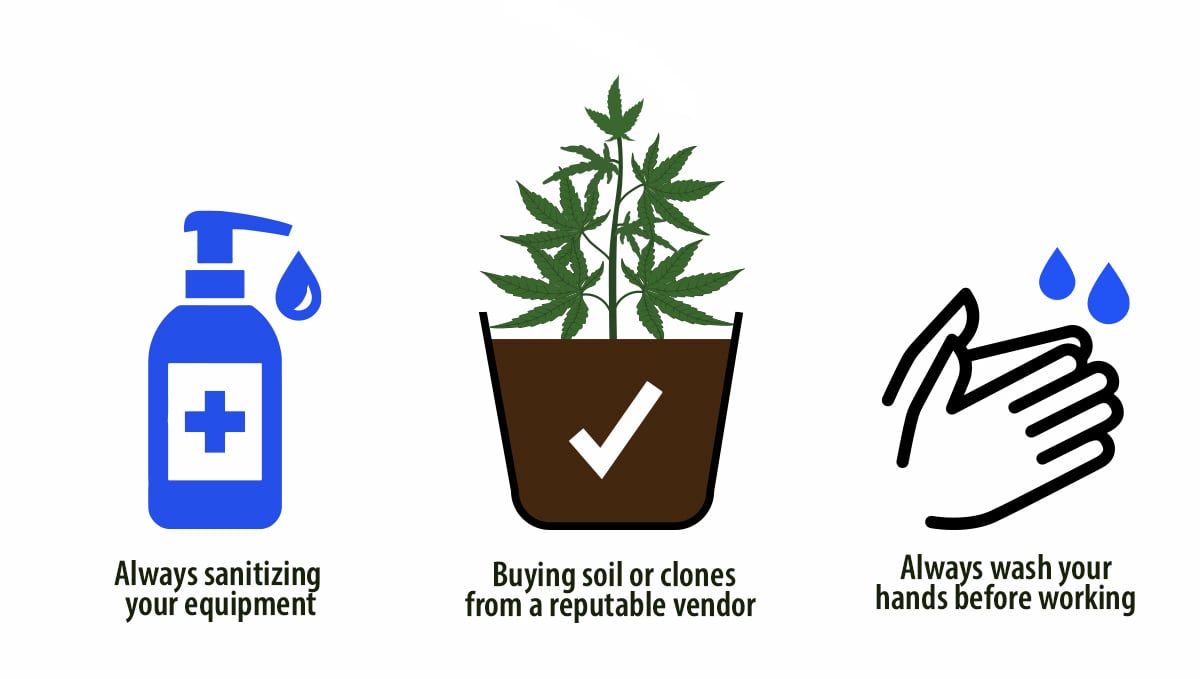
This virus can infect your plants by simply touching them so the best way to prevent it is always washing your hands before working on your garden and always make sure everything you bring in your garden is safe.
6. How to deal with it?
Unfortunately, there’s no way to remove the virus, once your plant or soil is infected because viruses cannot be controlled once they have been transmitted, this is why your best option is to prevent getting it. In fact, there is actually zero scientific evidence to prove that cannabis plants can even be infected with TMV, but that’s not to say that many growers haven’t reported their cannabis crops dealing with this exact issue. It has just never been properly studied in a controlled environment. If you ask us though, we do believe that cannabis crops can be affected by the virus, so let’s just continue on with that in mind.
If your plants get infected you should remove them from your garden, this not only applies to cannabis plants because the TM virus can infect all other plants in your garden and once it has spread throughout your garden, you’ll have to get rid of all the plants so as soon as you spot it, it’s better to remove it, remember the virus can even be transmitted by hand so it’s not worth it to risk it.
Unfortunately, there is no cure for the virus. TMV appears to spread from contact, so quarantining the infected plants is really the only true option you have if you want to keep the rest of the crop healthy. If you find a plant in an indoor grow that you suspect has fallen ill with TMV, it is highly important to sterilize the room as soon as possible.
If you are a tobacco smoker then you are constantly running the risk of carrying the virus. Even if you just use a small amount of tobacco in your spliffs, your hands may still be infected with TMV. If this is the case, be sure to always give your hands a solid and thorough washing before you go anywhere near your crop. If you are a particularly heavy smoker then you should consider wearing some form of coverall, as even your clothes may be carrying the virus. Also, if you are a heavy tobacco smoker, you should consider possibly quitting.
Tobacco smoking is the number one cause of preventable death, and it carries a diverse range of carcinogens and other nasties. If you have ever seen someone battle against lung cancer you will know that it is a pretty horrible disease. Smoke ganja instead! It is far less harmful to your lungs, and tastes way better! These days, there are a bunch of tobacco replacements. The replacements allow you to still smoke a large spliff without using tobacco, and they are much better for you. They also taste way better and allow you to enjoy the natural flavors of the weed way better than when mixed with tobacco. Or better yet, smoke the good good green.
7. In conclusion
Even though the tobacco mosaic virus won’t damage your plants like bugs do, it can become a vicious cycle, infecting all your plants around. It’s crucial you take care of infected plants as soon as you spot them and if you don’t want to remove them, maybe isolate them and always wash your hands and every piece of equipment you use before touching other plants.
If you have seen it on your crops or have important information to share with fellow growers, please leave a comment in the comment section below!
External References:
1. Tobacco mosaic virus and para-tobacco mosaic virus in cigarettes - Wetter, C. (1975).
2. Tobacco mosaic virus - Rifkind, David & Freeman, Geraldine. (2005).








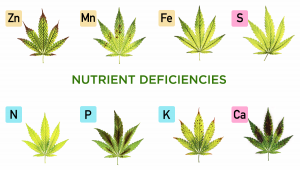

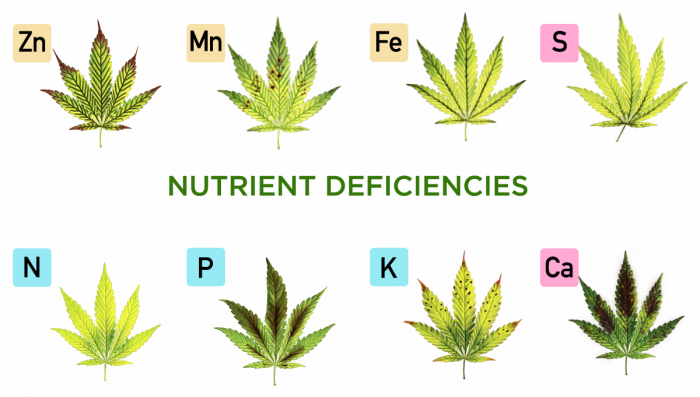

Comments